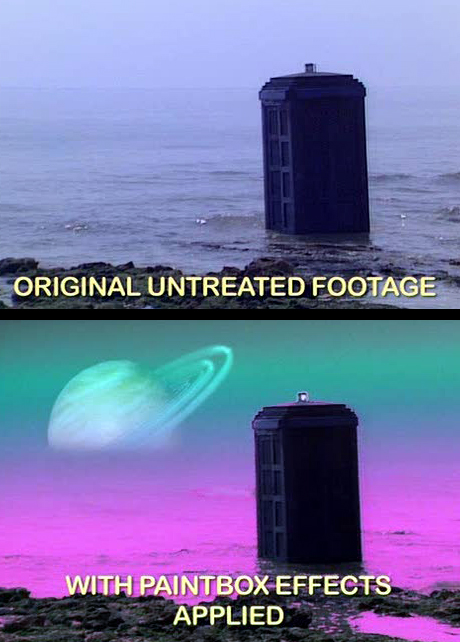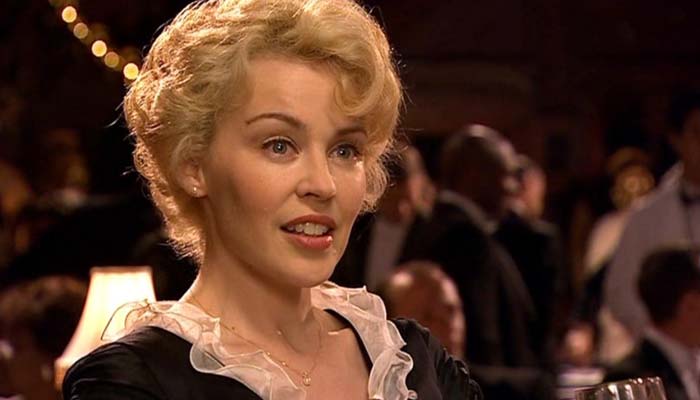Transmat:Doctor Who: Difference between revisions
No edit summary Tag: Shouting |
Eyacorkett (talk | contribs) mNo edit summary |
||
| (15 intermediate revisions by 8 users not shown) | |||
| Line 1: | Line 1: | ||
__NOTOC__ | __NOTOC__ | ||
{{template:transmat:{{PAGENAME}}}} | {{template:transmat:{{PAGENAME}}}} | ||
<div | <div id="tr-box-container" style="width:98%"> | ||
<div id="tr-box-container" class="tr-box-cols" style=margin-top:40px> | <div id="tr-box-container" class="tr-box-cols" style=margin-top:40px> | ||
<div class="tr-box one"> | <div class="tr-box one"> | ||
| Line 20: | Line 20: | ||
<div class="tr-box two"> | <div class="tr-box two"> | ||
{{thead|Ex-Doctors never die, they just make audios}} | {{thead|Ex-Doctors never die, they just make audios}} | ||
The careers of the [[Fifth Doctor|Fifth]], [[Sixth Doctor|Sixth]], [[Seventh Doctor|Seventh]] and [[Eighth Doctor]]s are '''significantly''' longer [[Big Finish Doctor Who audio stories|in audio]] than on television. Check out their latest works at '''[[:category:{{CURRENTYEAR}} audio stories]]''' | The careers of the [[Fifth Doctor|Fifth]], [[Sixth Doctor|Sixth]], [[Seventh Doctor|Seventh]] and [[Eighth Doctor]]s are '''significantly''' longer [[Big Finish Doctor Who audio stories|in audio]] than on television. Check out their latest works at '''[[:category:{{CURRENTYEAR}} audio stories]]'''. | ||
</div> | </div> | ||
<div class="tr-box one"> | <div class="tr-box one"> | ||
{{thead|The relevance of comics}} | {{thead|The relevance of comics}} | ||
Officially, only ''[[The Lodger (TV story)|The Lodger]]'' has been explicitly adapted from a comic strip — also called ''[[The Lodger (comic story)|The Lodger]]''. | Officially, only ''[[The Lodger (TV story)|The Lodger]]'' has been explicitly adapted from a comic strip — also called ''[[The Lodger (comic story)|The Lodger]]''. | ||
[[File:10MickeyFootball. | [[File:10MickeyFootball.jpg|center|link=http://tardis.wikia.com/wiki/Transmat:Doctor_Who?file=Craig_asks_The_Doctor_to_leave_-_Doctor_Who_-_BBC]] | ||
However, several stories have clearly taken material from comic strips — often those in ''[[Doctor Who Magazine]]''. ''[[The Shakespeare Code (TV story)|The Shakespeare Code]]'' contains a good amount of material from ''[[A Groatsworth of Wit (comic story)|A Groatsworth of Wit]]'', and the notion of the Doctor absorbing the [[time vortex]] in order to spare a [[companion]] was explored in both ''[[The Parting of the Ways (TV story)|The Parting of the Ways]]'' and ''[[The Flood (comic story)|The Flood]]''. | However, several stories have clearly taken material from comic strips — often those in ''[[Doctor Who Magazine]]''. ''[[The Shakespeare Code (TV story)|The Shakespeare Code]]'' contains a good amount of material from ''[[A Groatsworth of Wit (comic story)|A Groatsworth of Wit]]'', and the notion of the Doctor absorbing the [[time vortex]] in order to spare a [[companion]] was explored in both ''[[The Parting of the Ways (TV story)|The Parting of the Ways]]'' and ''[[The Flood (comic story)|The Flood]]''. | ||
</div> | </div> | ||
| Line 43: | Line 43: | ||
{{thead|[[{{CURRENTDAY}} {{CURRENTMONTHNAME}} (people)|{{CURRENTDAY}} {{CURRENTMONTHNAME}}]] births and deaths }}{{:{{CURRENTDAY}} {{CURRENTMONTHNAME}} (people)}} | {{thead|[[{{CURRENTDAY}} {{CURRENTMONTHNAME}} (people)|{{CURRENTDAY}} {{CURRENTMONTHNAME}}]] births and deaths }}{{:{{CURRENTDAY}} {{CURRENTMONTHNAME}} (people)}} | ||
</div> | </div> | ||
{{#ifexpr: {{PAGESIZE:{{CURRENTDAY}} {{CURRENTMONTHNAME}} (production)|R}} < 440|| | |||
<div class="tr-box two"> | <div class="tr-box two"> | ||
{{thead|Production history for [[{{CURRENTDAY}} {{CURRENTMONTHNAME}} (production)|{{CURRENTDAY}} {{CURRENTMONTHNAME}}]] }}{{:{{CURRENTDAY}} {{CURRENTMONTHNAME}} (production)}} | {{thead|Production history for [[{{CURRENTDAY}} {{CURRENTMONTHNAME}} (production)|{{CURRENTDAY}} {{CURRENTMONTHNAME}}]] }}{{:{{CURRENTDAY}} {{CURRENTMONTHNAME}} (production)}} | ||
| Line 49: | Line 49: | ||
</div> | </div> | ||
</div> | </div> | ||
{{reflist}} | {{reflist|2}} | ||
{{cache clearer}} | {{cache clearer}} | ||
Latest revision as of 08:24, 14 July 2024
Rose was the first episode of the BBC Wales version of Doctor Who. As the first televised story of the 21st century, it had to introduce the concept of the programme, as well as new regulars, Christopher Eccleston and Billie Piper. Its success on BBC One was immediate. As of 2013, it remained the second highest-rated season opener in Doctor Who history, behind only Destiny of the Daleks, a story that aired without any competition from other broadcasters. Aired in March, 2005 — several years before the BBC offered full scale digital content streaming — it picked up nearly 11 million terrestrial and cable BBC One viewers. The episode boasted a number of behind-the-scenes firsts, aside from merely being the first episode to feature Russell T Davies' vision of the show — such as being the first episode shot in a widescreen aspect ratio. It was also the first British-made episode to utilise an modern production style, and was thus the first time that credited cinematographers, production designers, colourists, digital artists, and any number of skilled professions had been credited on British-made Doctor Who.
Think Doctor Who is just for boys? Don't you believe it. Not only was the show's very first producer a woman, but it would never have come back without the fierce advocacy of Jane Tranter and Julie Gardner. Considering her importance to Doctor Who it's somewhat ironic that Tranter's only on-screen credits are for Torchwood: Miracle Day. But Gardner, her "partner in crime", is tied only with Russell T Davies as the most prolific producer in Doctor Who history.
The careers of the Fifth, Sixth, Seventh and Eighth Doctors are significantly longer in audio than on television. Check out their latest works at category:2024 audio stories.
Officially, only The Lodger has been explicitly adapted from a comic strip — also called The Lodger.
However, several stories have clearly taken material from comic strips — often those in Doctor Who Magazine. The Shakespeare Code contains a good amount of material from A Groatsworth of Wit, and the notion of the Doctor absorbing the time vortex in order to spare a companion was explored in both The Parting of the Ways and The Flood.
Donald Baverstock was the BBC executive who set the the wheels in motion that eventually led to the creation of Doctor Who. Essentially the original commissioner of the programme, he hired Sydney Newman and later imposed a sense of financial responsibility upon producer Verity Lambert.
But Baverstock wasn't the only BBC executive to have a profound impact on the development of Doctor Who. Make sure you read about Lorraine Heggessey, Mark Thompson, Danny Cohen, George Entwistle, Tony Hall, Shaun Sutton, Sydney Newman and others.- 1967
- Episode six of The Abominable Snowmen premiered on BBC1.
- Part two of the TV Comic story The Faithful Rocket Pack was published.
- 1972 - Part two of the TV Action comic story Steelfist was published.
- 1978 - Part two The Stones of Blood premiered on BBC1.
- 1981 - "The Forest of Fear" was repeated on BBC2.
- 1989 - The Incredible Hulk Presents comic story Technical Hitch was published.
- 2002 - The Infinity Race was published by BBC Books.
- 2009 - DWDVDF 22 was published by GE Fabbri Ltd.
- 2010
- A Shard of Ice were released by AudioGO.
- A Town Called Fortune was released by Big Finish Productions.
- DWA 191 was published by BBC Magazines.
- 2014 - The Story of Fester Cat was published by The Berkley Publishing Group.
- 2015
- The Ninth Doctor #5, The Eighth Doctor #1 and The Eleventh Doctor Year Two #2 were published by Titan Comics.
- TCH 71 was published by Hachette Partworks.
- 2016 - Toby Hadoke's Who's Round 192 was released online.
- 2018 - The Tsuranga Conundrum premiered on BBC One.
- 2019 - Sil and the Devil Seeds of Arodor was released on DVD and Blu-ray by Reeltime Pictures.
- 2020 - Blue Boxes was released by Big Finish.
- 2021 - K9 Audio Annual and The Time Travel Collection were released by BBC Audio.
- 2022 - Origins was published by Titan Comics.
- ... that 2|entertain became the sole property of BBC Worldwide in 2010, and that this acquisition was key to ensuring the long-term future of the Doctor Who universe on DVD and other home video formats?
- ... that Berenyi was a Time Lord who designed the assassination of John F. Kennedy? (PROSE: Untitled)
- ... that the Beatles' song "Paperback Writer", once a part of the soundtrack to The Evil of the Daleks, has effectively disappeared from the Doctor Who universe?
- ... that, despite being a relatively recent visitor to Earth, the First Doctor already knew much about Jewish and Christian traditions and holidays by the time he was travelling with Vicki? (PROSE: Byzantium!)
- ... that the Terpsivores were a race of massive centipedes who powered their spaceships by dancing? (COMIC: Death Disco)
- 1971 - Actor Robyn Moore was born.[1]
- 1982 - Actor Talfryn Thomas died.[2]
- 1998 - Actor Bear McCausland was born.[3]
- 2017 - Composer Dudley Simpson died.[4]
- 1967 - Episode three of The Ice Warriors was recorded at Lime Grove Studios D. (TCH 11)
- 1969 - Location filming for Spearhead from Space took place. (REF: Doctor Who The Handbook: The Third Doctor)
- 1976 - Pre-filming for The Robots of Death took place at Ealing Studios. (REF: Doctor Who The Handbook: The Fourth Doctor)
- 1979 - Studio filming for Shada took place at BBC Television Centre studio 3. (REF: Doctor Who The Handbook: The Fourth Doctor)
- 2005 - Big Finish's Sarah Jane Smith audio story Snow Blind was recorded at the Moat Studios.
- 2009 - Big Finish's audio adaptation of the unproduced TV story Point of Entry was recorded at the Moat Studios.
- 2019
- Big Finish's audio anthology Thin Time / Madquake was recorded at the Moat Studios.
- Big Finish's audio adaptation of Revenge of the Cybermen's original storyline was recorded at Audio Sorcery.
- 2023 - The #DoctorDonnathon event took place at the Genesis Chamber.




